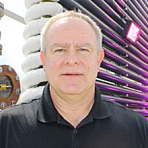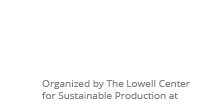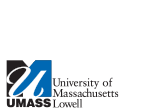A4 Quarterly Webinar

Join us for a special joint webinar with

Between a Rock and a Hard Place: Inadvertent
PCBs (iPCBs) and a Circular Paper Economy
Tuesday, January 10, 2023
View Slides (pdf), Watch on YouTube
Although the production of PCBs was banned in 1979 under the Toxics Substance Control Act (TSCA), PCBs are still allowed to be inadvertently produced (iPCBs) in certain chemical manufacturing processes that involve chlorine and high temperatures. A regulatory paradox was created because the allowable levels under TSCA are billions of times higher than PCB water quality standards. Among the most common sources of iPCBs are pigments which are widely dispersed throughout commerce when incorporated into inks, paints, and colorants used to print newspapers, magazines, other paper products, packaging or applied as decorative or protective finishes. iPCBs contained in these products ultimately find pathways into the ecosystem through stormwater and wastewater treatment plants. For example, when paper products become waste and are recycled, iPCBs can once again become concentrated and create manufacturing effluent problems that would not exist if only virgin fibers were used. This creates a dilemma: recycle paper and add to the iPCB pollutant load, or continue to take, make, and waste.
In this webinar, Doug Krapas, Environmental Manager at Inland Empire Paper, will describe the challenges faced as a paper manufacturer and recycler, and how a combination of regulatory updates and market alternatives might hold the key to solving the dilemma. Lauren Heine from ChemFORWARD will provide a brief overview of a new, freely available resource designed to identify pigments that are not likely to contain iPCBs because they are manufactured without using chlorinated reagents or solvents.
Webinar Speakers
 |
Doug Krapas, Environmental Manager Inland Empire Paper |
 |
Lauren Heine, Director of Science & Data Integrity ChemFORWARD |


